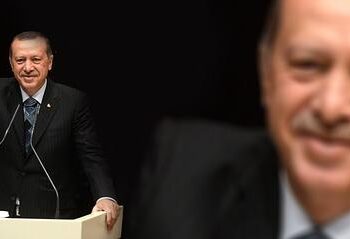Sitting atop a Havana hotel on New Year’s Eve 1958, Hyman Roth, the fictional gangster featured in “The Godfather Part II” shared his vision for cooperation with the Cuban regime. “Here we are,” Roth beamed, “In partnership with a friendly government. . . . We’re bigger than US Steel.”
That confidence was misplaced.
Within the week, the Cuban government fell, Castro was in Havana, and Roth’s dreams were dashed. Today, his vision for the capital is long gosne and the Castros still reign. Yet in America, the idea of renewed partnership with the Cuban government has captured the imagination of President Obama.
Like Roth, Obama’s dream rests firmly on his confidence in the ability of an unreliable Cuban government to deliver. And like Roth — who ignored the revolution building around him — Obama’s aggressive plans give short shrift to the intense emotions that fuel debate about America’s Cuba policy.
Within the US Congress, both sides bring decades of personal history and deep emotions to any discussion of the island country. That was readily apparent in the visceral reactions of Senators Marco Rubio, the Republican from Florida, and Robert Menendez, the New Jersey Democrat, immediately after the White House announcement; and it’s not something that will change quickly. The alliances go back generations, cross party lines, and affect policymakers far beyond the confines of the Cuban-American community.
Equally hard to ignore, the authoritarian regime built by Fidel Castro and inherited by brother Raul remains an oppressive Marxist dictatorship. They’ve made no overtures, taken no steps, nor opened any doors that would seem to warrant Obama’s ambitious and public effort to reinvigorate Cuba’s international standing. To the contrary. Last week, as if on cue, free speech advocates were arrested for simply setting up a microphone to allow participants to take turns expressing their views about the future of Cuba. How’s that for engagement?
Through 55 years of Communist rule, the intensity of anti-Castro sentiment in Congress has only been amplified by efforts to appease leftist insurgents throughout Central America. In the 1980s, liberals pressed to cut assistance to Nicagragua’s Contra rebels and promoted relations with the Communist government of Daniel Ortega. For more than a decade in the 2000s, the same contingent encouraged closer ties with Hugo Chavez even as he eliminated the Venezuelan Senate and assumed dictatorial powers. Obama’s State Department actually offered praise for the 2009 referendum that removed any obstacle to Chavez serving as president for life.
As attitudes hardened, advocates on both sides became more and more absolute in the policies they pursued. Over time, their initiatives looked less and less like policy prescriptions and more like acts of faith. Conservatives demanded complete isolation of the Cuban regime. No anti-Castro program was too small, too controversial, or too ineffective. Most noteworthy, perhaps, TV Marti survived repeated efforts to cut funding despite numerous surveys showing it was notoriously ineffective. (The airborne signal was easily jammed by the Cuban government from the start.)
Meanwhile, liberals in Congress pressed to eliminate diplomatic and economic sanctions altogether, regardless of the regime’s performance on social, economic, or political freedom. As the polarization deepened, the number of members of Congress occupying the middle ground dwindled. I know; I was one of them.
In addition to opposing funding for TV Marti, I voted to allow greater access to food and medicine exported from the US and to end restrictions on personal travel to Cuba. Without any unusual security risks inside the country, I could never justify government restrictions on the movement of law-abiding Americans. At the same time, I felt that lifting diplomatic or economic sanctions should only be done in conjunction with changes the regime made to genuinely improve economic and political conditions inside the country.
By proposing to end the embargo against Cuba without any corresponding move toward democratization or greater respect for human rights, Obama ignores that middle ground. Embracing the faith of the left, he deepens the divide and makes it more difficult to succeed where success is possible. Equally problematic, he ensures maximum resistance where Congress — and conservatives — hold greatest leverage: funding embassy activity and enacting changes to trade laws passed in 1992, 1996, and 2000.
Obama may yet succeed in establishing a closer relationship with Cuba, but the path he has chosen makes a tough task far more difficult. For Cuba, however, the risks are minimal. In exchange for the release of two detained Americans, Cuba has won the release of three criminals — one convicted of murder. Our State Department has opened high-level diplomatic negotiations, and the president of the United States is leading the fight to end the economic embargo. That’s an offer they can’t refuse.
John E. Sununu, a former Republican senator from New Hampshire, writes regularly for the Globe.
Source link : https://www.bostonglobe.com/opinion/2015/01/02/obama-misplaced-faith-cuba/kNvMwSUAy7OMagTgNKXqNO/story.html
Author :
Publish date : 2015-01-02 03:00:00
Copyright for syndicated content belongs to the linked Source.












